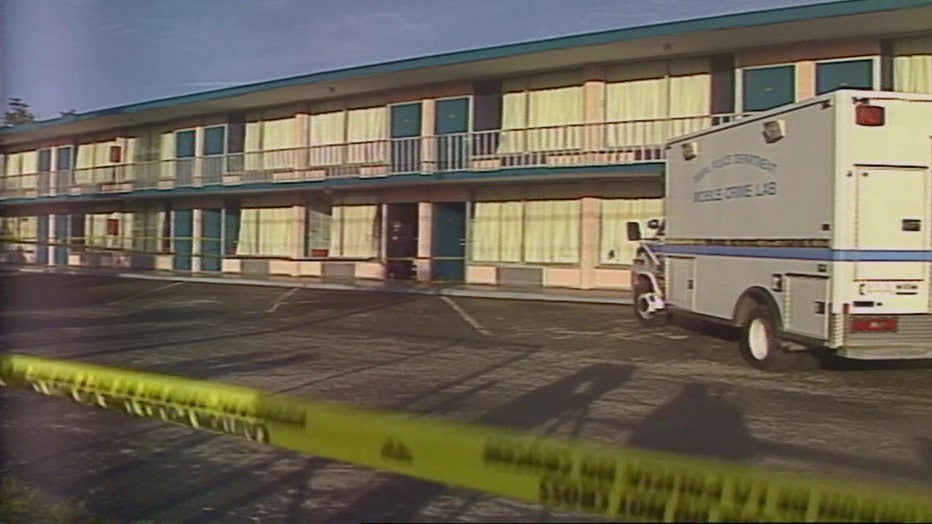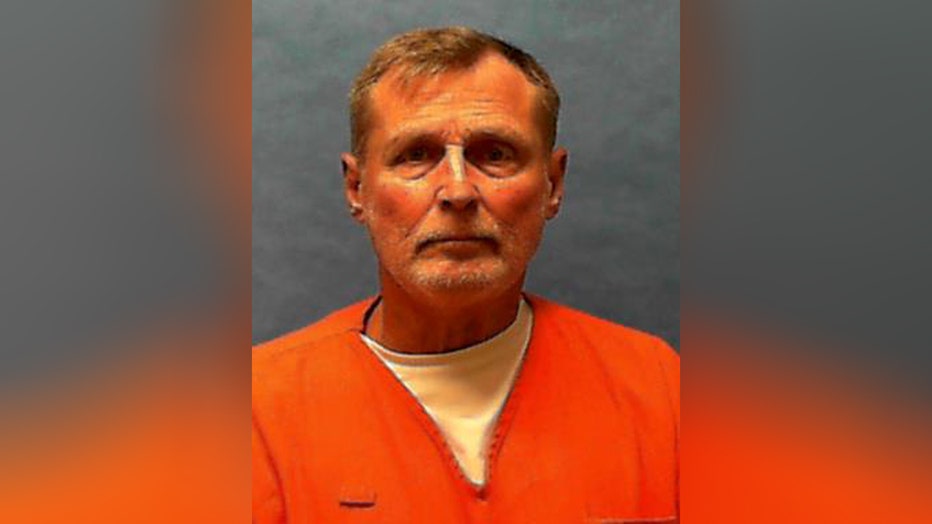Death penalty opponents protest in Clearwater ahead of 'Casanova Killer' execution
CLEARWATER, Fla. - Hours before the execution of Glen Rogers, a convicted serial killer linked to a string of violent murders in the 1990s, Floridians for Alternatives to the Death Penalty protested on Thursday in Pinellas County.
Rogers, 62, died by lethal injection at around 6 p.m. at the Florida State Prison.
The backstory:
He was convicted in 1997 for the 1995 murder of Tina Marie Cribbs, a 34-year-old Tampa waitress. Prosecutors said Rogers met Cribbs at a bar and lured her to a motel before stabbing her to death and leaving her body in the bathtub.

Pictured: Crime scene after Tina Cribbs was found dead in November 1995.
He was also convicted in Los Angeles of killing Sandra Gallagher, a woman he offered a ride to after a bar. Gallagher was later found burned to death in her car.
Authorities in multiple states, including Mississippi, Louisiana, and Ohio, have linked Rogers to at least five other killings, although not all resulted in convictions. At one point, he claimed responsibility for up to 70 murders, though investigators consider many of those claims to be exaggerated or false.

Mugshot of Glen Rogers. Courtesy: Florida Department of Corrections.
The other side:
As the execution neared, members of Floridians for Alternatives to the Death Penalty (FADP) and Allendale United Methodist Church gathered at the corner of Ulmerton Road and 49th Street North to protest the state’s decision.
John Stewart with FADP said Rogers endured years of abuse as a child, including sexual trafficking and forced participation in child pornography, and that background was never shared with the jury. Stewart believes the governor should commute Rogers’ sentence to life without parole.
RELATED: 'Casanova Killer' to be executed Thursday for Tampa murder
"The death penalty doesn't deter crime, and it costs far more than life in prison without parole," Stewart said in a news release. "Even with all that money spent on trials and appeals, Florida leads the nation in one area: it has been forced to exonerate 30 innocent people from death row, more than any other state."
Stewart says they would prefer to see life sentences imposed, instead of the death penalty. He also raised concerns over the dangers of lethal injection drugs and the effectiveness of the punishment.
"The death penalty, despite popular assumptions, does nothing to reduce the murder rate," he said.
What they're saying:
However, Gov. Ron DeSantis was asked about the death penalty during a press conference on Thursday.
"This stuff is just overwhelmingly sadistic," DeSantis said. "It shocks your conscience, and that's just not the way a civilized society can function."
He said the death penalty is absolutely appropriate under the circumstances of the crimes for which it's imposed.
"Part of it is an appropriate punishment," DeSantis said. "Part of it is, it expresses the outrage of the community, because if you do something less than that, then potentially, you're sending the signal that yeah, it's bad, but not as bad as it could've been. No. These are the worst of the worst."
Hillsborough State Attorney Suzy Lopez, along with Tina Marie Cribbs' mother, Mary Dicke, were present for Rogers' execution.
The Source: Information for this story was gathered by FOX 13's Matthew McClellan.
STAY CONNECTED WITH FOX 13 TAMPA:
- Download the FOX Local app for your smart TV
- Download FOX Local mobile app: Apple | Android
- Download the FOX 13 News app for breaking news alerts, latest headlines
- Download the SkyTower Radar app
- Sign up for FOX 13’s daily newsletter


